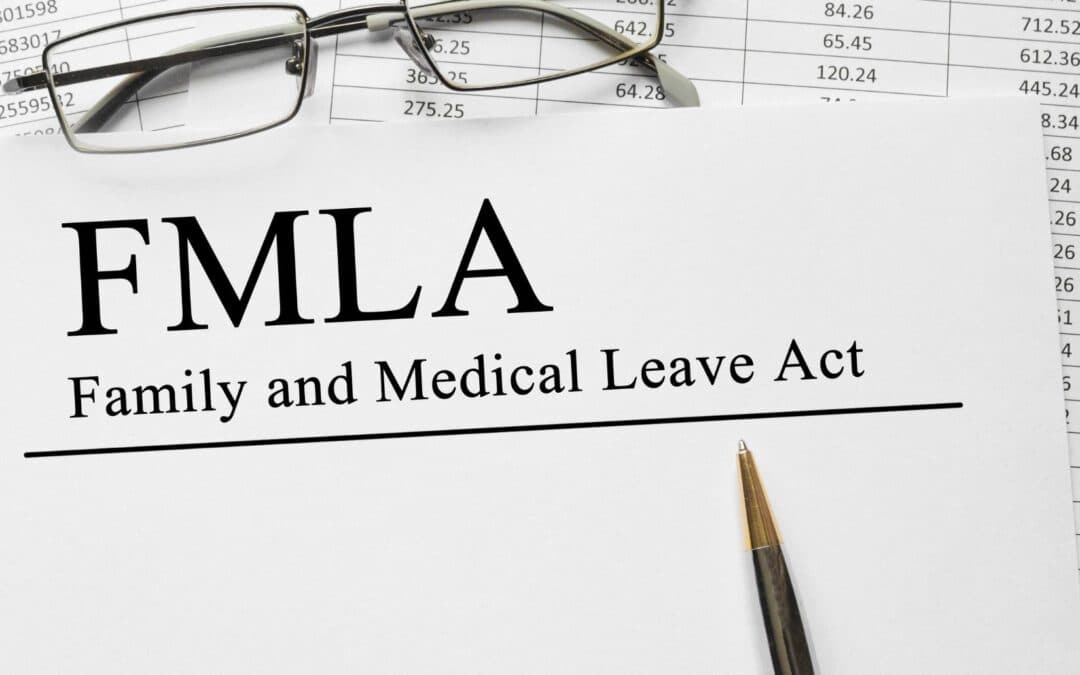The Family and Medical Leave Act (FMLA) provides eligible employees unpaid leave for family and medical reasons. Enacted in 1993, FMLA balances work and family responsibilities. Chicago personal injury cases may intersect with FMLA. Employment law ensures compliance. FMLA applies to private-sector employers with 50+ employees. Public agencies and schools are also covered. Eligible employees must have worked 1,250 hours in 12 months preceding leave. FMLA aims to support employees during life’s challenging moments.
(Pregnancy Discrimination in the Workplace: Know Your Rights)
Eligibility Requirements
To qualify for FMLA, employees must meet specific criteria. They must have worked 1,250 hours in 12 months preceding leave. Employees must be employed by a covered employer with 50+ employees. The workplace must have 50+ employees within 75 miles. Eligibility is determined at the time of leave request. Employees on FMLA leave may receive benefits. Eligible employees include those caring for newborns or adopted children. FMLA eligibility also extends to employees with serious health conditions.
Types of FMLA Leave
FMLA provides various types of leave, including family leave and medical leave. Family leave allows employees to care for newborn or adopted children. Medical leave enables employees to recover from serious health conditions. Pregnancy-related disabilities also qualify for medical leave. Military leave supports employees caring for injured service members or covered veterans. Qualifying exigencies related to military duty are also covered. FMLA leave is typically unpaid. However, employees may choose to use accrued paid time off.
Employee Rights
Under FMLA, employees have several rights. They are entitled to unpaid leave for up to 12 weeks in 12 months. Employees may take up to 26 weeks of military caregiver leave. Job protection ensures employees return to the same or equivalent position. Employees maintain health insurance coverage during leave. Protection from retaliation safeguards employees reporting FMLA violations. Employers must provide written notice of FMLA rights. Employees should understand their entitlements.
Employer Obligations
Employers have specific obligations under FMLA. They must provide FMLA information to employees. Employers must designate FMLA leave within five business days of receiving notice. Record-keeping requirements apply. Employers must maintain FMLA records for three years. Compliance ensures fairness. Employers should establish clear FMLA policies. Employee education and training promote understanding.
Chicago Personal Injury Considerations
Work-related injuries may qualify for FMLA. Employers must ensure safe environments. Compliance prevents accidents. Chicago personal injury cases may arise from workplace negligence. Employees should report incidents promptly. Employers must investigate and address concerns. FMLA intersects with workers’ compensation. Understanding FMLA rights supports injured employees.
FMLA and Employment Law
FMLA intersects with other employment laws. The Americans with Disabilities Act (ADA) and Illinois Human Rights Act provide additional protections. Employers must comply with regulations. FMLA entitlements extend to eligible employees. Employment law ensures fairness. Compliance promotes positive workplaces. Employers should understand FMLA’s intersections with other laws.
Best Practices for Employers
Employers should develop clear FMLA policies. Policies should outline procedures and employee rights. Employee education and training promote understanding. Designating FMLA leave promptly ensures compliance. Communication with employees is crucial. Employers should maintain accurate records. Regular policy reviews ensure compliance. Employers should provide written notice of FMLA rights. Employee handbooks should include FMLA policies. Employers should designate FMLA coordinators. Annual training supports compliance.
Common FMLA Mistakes
Inadequate notice is a common FMLA mistake. Failing to provide timely notice can lead to compliance issues. Incorrect designation of FMLA leave can cause confusion. Employers should establish clear procedures. Employee education prevents misunderstandings. Regular audits ensure compliance. Inadequate record-keeping can lead to compliance issues. Failure to provide FMLA information can cause confusion. Employers should review policies regularly. Employee training promotes understanding.
Conclusion
Understanding FMLA rights and responsibilities ensures compliance. Employees should recognize eligibility and entitlements. Employers must provide supportive environments. FMLA promotes work-life balance. Compliance ensures fairness.
If you’re looking for an experienced Chicago personal injury lawyer to help navigate your claim, we will fight assiduously for your right to the compensation you deserve. Call Bizzieri Law Offices at 773.881.9000. The case evaluation is free, and we never charge a fee unless we recover damages for you.

